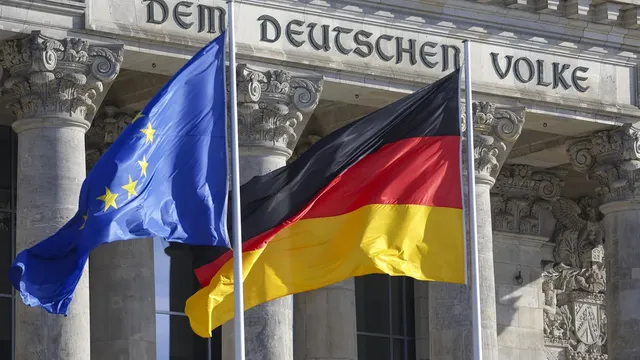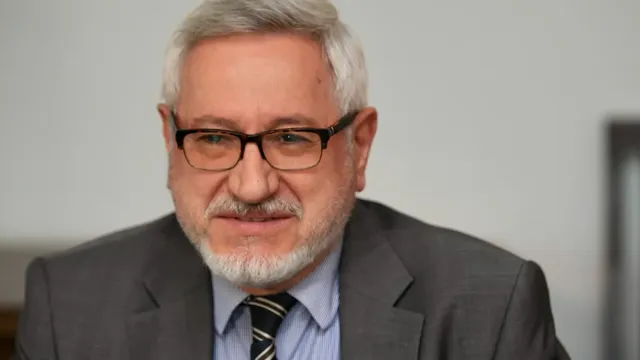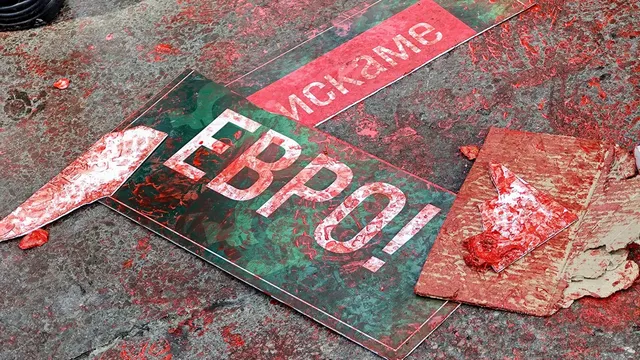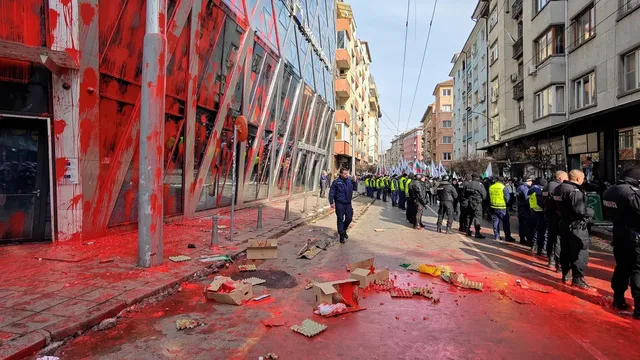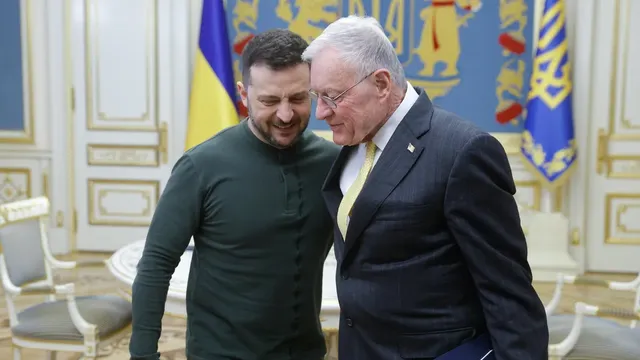German citizens today decide who will run the next government. Friedrich Merz's conservative Christian Democrats are the favourites to become the largest ruling party.
The revival of the European Union's biggest economy, as well as immigration and security, are the main issues in this snap election triggered by the collapse of Chancellor Olaf Scholz's coalition late last year.
More than 59 million Germans over the age of 18 are eligible to vote. It will take place between 09:00 and 19:00 (Bulgarian time) on Sunday. Millions of postal votes have already been cast. The result will be announced late in the evening.
There are five candidates for chancellor
If the largest party manages to reach a coalition agreement with one or two other parties, the president usually appoints its leader as chancellor. Parliament then holds a secret ballot to decide.
The leader in the race to govern Germany is Friedrich Merz, whose Christian Democrats (CDU) have up to a 10-point lead in opinion polls. Merz was chosen as chancellor candidate ahead of Markus Söder, leader of Bavaria's sister party, the Christian Social Union (CSU).
Olaf Scholz has now served more than three years as chancellor, at the head of an unpopular coalition that fell apart in a dispute over loosening Germany's strict debt rules.
Alice Weidel is Alternative for Germany's (AfD) first candidate for chancellor since the party was founded in 2013. She also enjoys the support of billionaire Elon Musk and was rewarded with a meeting with US Vice President JD Vance during his visit to Munich. Weidel has little chance of winning power, but she has become popular among young voters on TikTok, amassing over 870,00 followers, and has reached a much larger segment of the population with her repeated appearances in televised election debates.
After months of political stalemate and at a time of global uncertainty, Germans and their European allies look to this election to provide clear leadership and direction as faith in the long-standing alliance with the US wanes.
At home, the flagging German economy, which after two years of recession is under pressure from high energy prices triggered by Russia's war in Ukraine and from strong competition from China, is crying out for a 'repair'.
A series of deadly bombings has intensified pressure to reform immigration and refugee rules. Immigrants were accused of carrying out three deadly attacks during the election campaign - in Magdeburg, Aschaffenburg and Munich.
Security fears and growing dissatisfaction with politicians propelled the far-right Alternative for Germany into second place. If the AK Party doubles its number of seats in parliament, it will pose a challenge to the long-standing firewall, the Brandmauer, which has so far blocked the main parties from working with them.
Bundestag elections are usually held every four years - this one was due to take place on 28 September 2025 but was brought forward due to the fall of the Scholz government.
People over 18 have two votes on one ballot paper, which will determine who goes into the Bundestag, whose membership has now been reduced from 733 to 630 seats.
One vote directly elects the members of the Bundestag in 299 constituencies. The second vote is for the election of a political party in one of the 16 regions.
Any party that passes the 5% threshold is allowed to enter the Bundestag, and then uses the lists of its provinces to elect specific MPs.
Complicated seat allocation rules have been scrapped, but the new rules suggest that some candidates elected directly could lose their seat if their parties do not perform well across the province.
One of the old rules remains. Any party that fails to get 5% of the vote can still enter the Bundestag if it wins in three of the 299 constituencies.
Which parties could form Germany's next government?
The conservative CDU and CSU parties are favourites to win the most seats, but by ruling out a coalition with the AK Party, Merz has narrowed down their options as potential partners in government. This makes a deal with the Social Democrats most likely. Many in the SPD are reluctant to work with Merz after last month's migration scandal, but a so-called grand coalition of the two parties is still on the agenda. If they fail to secure more than half the seats in the Bundestag for a majority, a third party, most likely the Greens, may be needed. | BGNES

 Breaking news
Breaking news
 Europe
Europe
 Bulgaria
Bulgaria
